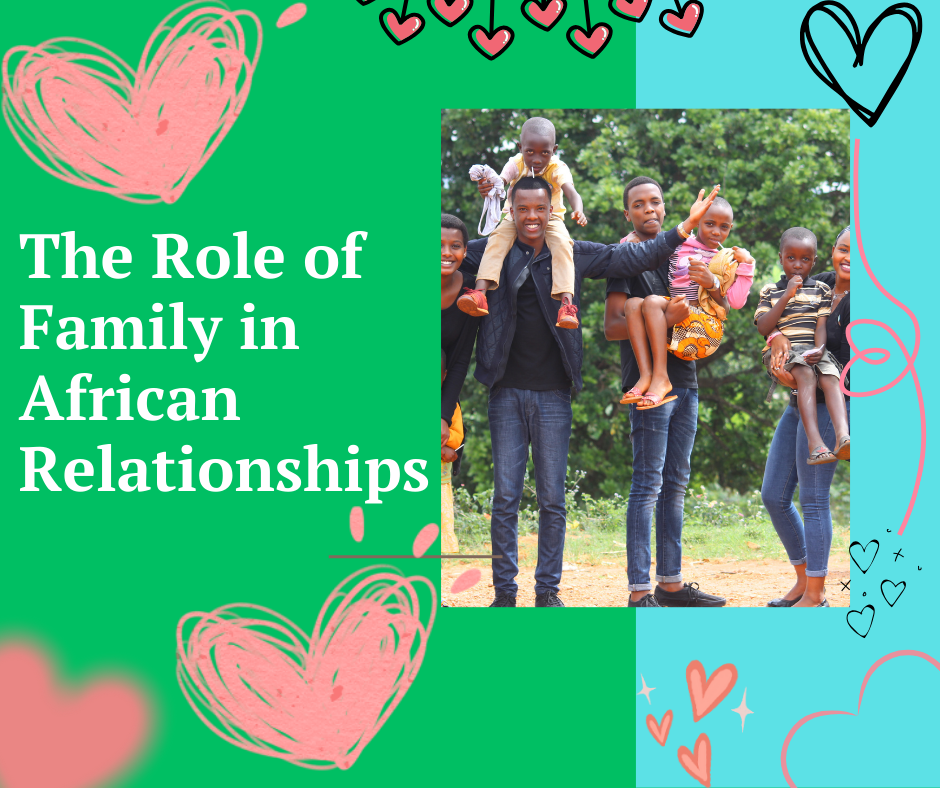1. Family as the Foundation of Relationships
In African traditions, family is the backbone of society. Unlike in some Western cultures where relationships are often viewed as private matters between two people, African relationships are deeply interwoven with family values and expectations.
Tip: When entering a serious relationship, it’s important to acknowledge and respect your partner’s family dynamic, as they will likely be involved in key aspects of your journey together.
2. Parental Approval and Blessings
In many African cultures, seeking parental approval is a crucial step in relationships, especially when it comes to marriage. Parents and elders are seen as wise guides who ensure that their children choose the right partner.
Tip: If you're in a serious relationship, take time to build a relationship with your partner’s family. Showing respect to elders and seeking their blessings can strengthen your bond.
3. The Role of Extended Family
In African families, it’s not just parents who play a role in relationships—aunts, uncles, cousins, and grandparents often have a say as well. These extended family members provide emotional and sometimes financial support, making them an integral part of the relationship.
Tip: Understand that decisions, such as marriage and even conflict resolution, may involve extended family. Being open to their involvement can help navigate family dynamics.
4. Bride Price and Traditional Marriage Ceremonies
Many African cultures practice lobola (bride price) or traditional marriage ceremonies before or alongside legal marriages. These customs symbolize respect for the bride’s family and solidify the union between two families.
Tip: If you're planning to marry within African traditions, take the time to understand the cultural expectations and discuss them with your partner.
5. Family Support During Challenges
One of the biggest advantages of strong family involvement in relationships is the support system they provide. In times of financial hardship, emotional struggles, or even marital conflicts, families step in to offer advice, assistance, and guidance.
Tip: While family support is valuable, it’s essential to set boundaries and ensure that external opinions do not overpower the couple’s personal decisions.
6. Respecting Cultural and Religious Influences
Family values in African relationships are often deeply rooted in culture and religion. From the way a relationship is conducted to expectations of gender roles and marriage, family beliefs play a significant role.
Tip: If you and your partner come from different cultural or religious backgrounds, having open discussions about expectations early on can help prevent misunderstandings.
7. Balancing Family Expectations with Personal Happiness
While family plays a vital role, it’s important to balance respect for family traditions with personal happiness. Sometimes, couples face challenges when their personal desires clash with family expectations, such as career choices, intertribal or interfaith marriages, or modern relationship dynamics.
Tip: Healthy communication between you, your partner, and your families can help bridge generational and cultural gaps while prioritizing your happiness.
Final Thoughts
Family is an essential pillar in African relationships, offering love, wisdom, and guidance. While navigating family involvement can sometimes be challenging, embracing cultural values while maintaining healthy boundaries can lead to a fulfilling and harmonious relationship.
Love in African relationships isn’t just about two people—it’s about building a union that brings families together.
